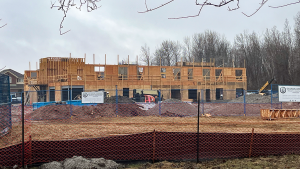The need for a multi-pronged approach to addressing the province’s construction workforce shortage was addressed emphatically during a panel session held as part of the Ontario Road Builders’ Association (ORBA) conference in Toronto recently.
ORBA delegates heard efforts to advocate for reform of the immigration system to create a new stream of construction workers are being supplemented by enhanced recruitment strategies as well as interventions to connect with new Canadians at the immigration intake stage.
The panel session, held Feb. 6, was moderated by BuildForce Canada executive director Bill Ferreira. He told the ORBA delegates that with unprecedented construction spending slated to roll out over the next 10 years amidst a climate of significant retirements, it is unlikely the construction sector is going to see any reprieve from workforce shortages in the near term.
“We know we’re going to have a problem and the construction industry is doing everything that it can to recruit domestically, but the reality is, more people will be leaving the workforce than are available to enter the workforce,” said Ferreira. “All of the sectors are facing this challenge. So your competition for those younger workers is going to be incredibly intense.”
Overall, the Ontario construction sector has about 600,000 workers of which the roadbuilding sector accounts for about 34,000. Across the country, Ferreira noted, 27 per cent of the labour force now is made up of newcomers, but in construction it’s only 18 per cent. With immigration heavily weighted to Ontario, the numbers are higher — 34 per cent of the province’s labour force is made up of newcomers and 27 per cent of the construction labour force consists of new Canadians.
“Over the next three years there will be 750,000 new immigrants to the province,” Ferreira explained. “Construction is going to have to do a better job of recruiting those individuals, bringing them into the industry, but that also requires some policy changes.”
Proposed changes to immigration rules fall into three asks, said panellist Kenny Leon, innovation advocate for the Canadian Construction Association (CCA).
The first is to remove bias in the immigration point system that favours better-educated prospects over less-educated workers who might have skills in construction labour.
The second is the ability to match construction skills where needed, and more immediately, rather than the current timeline estimated to be 58 weeks. The third is updates to the Temporary Foreign Worker program.
The CCA’s most recent Hill Day, when the association sends lobbyists to visit MPs to advocate for changes, reached 60 MPs with a call for immigration reform, Leon said.
“The local MPs, they were fully aware of the need for change,” he said. “It’s not needed in the future. It’s actually needed now.”
Ferreira said discussions are continuing with federal Minister of Immigration Sean Fraser.
“The minister has certainly indicated that he is open to prioritizing the selection of skilled trade workers,” he said. “We’re still waiting to see what the details of that are going to look like.
“You get into the lower skilled trades, the voluntary trades, it’s really difficult for those individuals to find their way to Canada through the current system. What we need is to prioritize their entry into the country because those are the jobs that are in very, very high demand right now.”
Past CCA chair Frank Rizzardo discussed the topic with Ferreira after the panel wrapped up. Rizzardo called the current immigration system, in which newcomers with PhDs are highly prized, an “embarrassment.”
“From a priority basis we don’t need PhDs, we need truck operators…(infrastructure spending) goes to waste when we can’t get asphalt to the pavers,” he said.
Other CCA workforce initiatives include the Talent Fits Here program as well as its participation with other agencies including BuildForce to boost the Canadian Apprenticeship Service. The Talent Fits Here program was launched as an online awareness campaign in 2020 and is in its fifth phase, said Leon. To date the program has recorded 65 million impressions online.
The Canadian Apprenticeship Service program provides up to $20,000 per fiscal year in financial incentives for small and medium-sized enterprises to hire apprentices.
“If you’re looking to hire heavy equipment operators, you may be eligible for the grant,” he told the ORBA delegates.
Follow the author on Twitter @DonWall_DCN











Recent Comments
comments for this post are closed